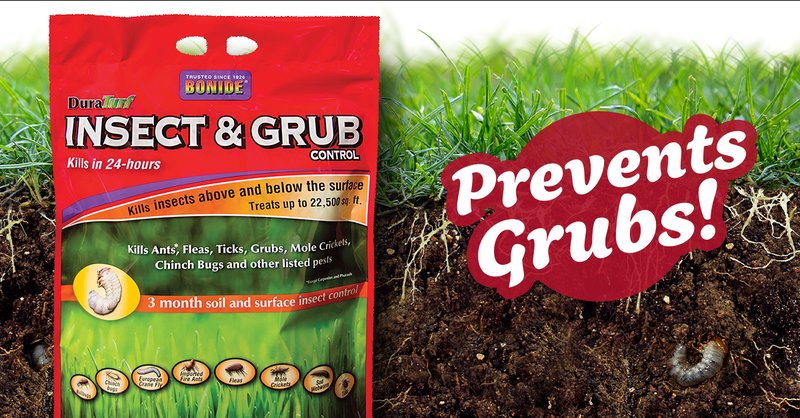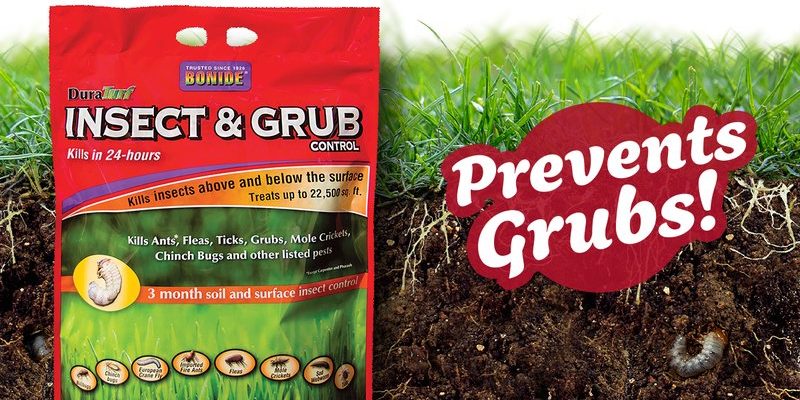
In this article, we’re going to explore some easy, chemical-free methods to keep grub worms away from your yard. We’ll go through various techniques, from natural repellents to beneficial insects that help control grub populations. You might be wondering why you should choose a non-chemical approach. Well, not only is it better for the environment, but it’s also safer for your pets and kids. So, grab your gardening gloves, and let’s dig in!
Understanding Grub Worms
Before we dive into prevention methods, it helps to know what you’re up against. **Grub worms** are small, C-shaped larvae that typically hatch from eggs laid by adult beetles. They spend a lot of time underground feeding on plant roots and decaying organic material. This munching can lead to a very unhealthy lawn and those unsightly patches we discussed earlier.
Grubs tend to appear most often in late summer through early fall. During this time, adult beetles are laying eggs in your lawn, which hatch into grubs shortly after. Knowing their life cycle can be your best friend in planning your prevention strategy.
Another crucial point is that some lawns can tolerate a small number of grubs without any noticeable damage. In fact, healthy grass can handle a few grubs here and there. But if you see a sudden decline in your lawn’s health, escalating your preventative measures is essential.
Encouraging Beneficial Nematodes
Let me explain the role of beneficial nematodes in your anti-grub strategy. These are microscopic worms that live in the soil and are natural predators of grubs. When you introduce beneficial nematodes to your garden or yard, they actively seek out grubs, entering their bodies and releasing bacteria that kill them. Think of them as the secret agents of your lawn, working hard while you sip your coffee!
You can find beneficial nematodes at garden centers or online. When applying them, make sure to do so in the early morning or late afternoon when the sun isn’t too hot. This will ensure they move into the soil effectively. You’ll want to mix them with water and apply them using a sprayer or a hose-end sprayer for even coverage.
Regularly introducing these allies can significantly reduce grub populations. Plus, they won’t harm your plants, pets, or the environment—with nematodes, you’re taking a fully natural approach.
Natural Repellents to Deter Grubs
Another effective method to keep grub worms away is using **natural repellents**. Certain plants and substances can repel these pests, making your yard less attractive to them. Here’s a list of some popular natural repellents:
- Garlic: The strong smell of garlic can deter grubs. You can mix garlic powder with water and spray it on your lawn.
- Neem Oil: Extracted from the seeds of the neem tree, this oil disrupts the grub’s lifecycle and prevents them from feeding.
- Castor Oil: Similar to neem, this oil works by creating an unpleasant environment for grubs.
You might be wondering how to apply these. A simple spray can often do the trick. Mix the repellent with water in a spray bottle and cover your yard. Keep in mind to reapply after heavy rainfall or watering.
Generally speaking, using natural repellents is a great way to keep your garden healthy while being eco-friendly.
Maintaining Healthy Soil
Healthy soil is like a fortress against pests, including grub worms. When your soil is rich in nutrients and organic matter, it encourages robust grass and plants that can withstand pests better. Here’s how to keep your soil in top shape:
1. **Aeration**: Aerating your lawn allows air, water, and nutrients to penetrate the soil, promoting root growth. This can make your plants less susceptible to damage from grubs.
2. **Organic Matter**: Regularly adding organic matter, such as compost or well-rotted manure, can improve soil structure and fertility. A strong soil foundation leads to healthier plants that can better resist grub damage.
3. **pH Balance**: Testing and adjusting soil pH can make a big difference. Grubs prefer acidic soils, so maintaining a neutral pH level can help deter them.
Think of investing in your soil as creating a lush and vibrant community that supports your plants. When your soil thrives, your plants thrive, and that naturally helps keep pests at bay.
Implementing Crop Rotation
You might be surprised to learn that even **crop rotation** can help prevent grub worms! This technique involves changing the type of plants you grow in a specific area each season.
Grubs often develop in association with certain plants, so rotating them can disrupt their lifecycle. For instance, if you’ve noticed grub activity in your vegetable garden, consider changing where you plant similar crops next season.
Not only does this practice help reduce grub populations, but it also contributes to healthier soil by preventing nutrient depletion and managing plant diseases. It’s a win-win situation!
Attracting Birds and Other Natural Predators
Let’s not forget the power of **nature** itself! Birds and other animals are your allies in pest control. Many birds naturally feed on grubs, making your yard a haven for them can keep your grub population in check.
You can attract birds by:
– **Installing Bird Feeders**: A variety of seeds can lure different birds to your garden.
– **Creating a Water Source**: A small birdbath can provide essential drinking water and encourage birds to visit regularly.
– **Planting Native Flora**: Native plants can attract insects that birds love to eat, further enhancing your natural pest control.
By making your yard inviting to birds, you’re letting nature do the hard work for you. Plus, there’s something lovely about seeing birds flitting about your garden while providing essential pest control.
Final Thoughts: A Holistic Approach
In the end, preventing grub worms without chemicals is all about working with nature rather than against it. By using techniques like **beneficial nematodes**, natural repellents, healthy soil practices, crop rotation, and attracting natural predators, you can create a balanced ecosystem in your yard.
Remember, a little patience goes a long way. It’s not about getting immediate results but nurturing your garden for long-term health. You’ll find that in the end, you’ll be rewarded with a vibrant lawn and flourishing plants while keeping those pesky grubs at bay.
So, as you embark on this journey of natural prevention, keep your gardening tools ready and your heart open to the wonders of nature. Happy gardening!

